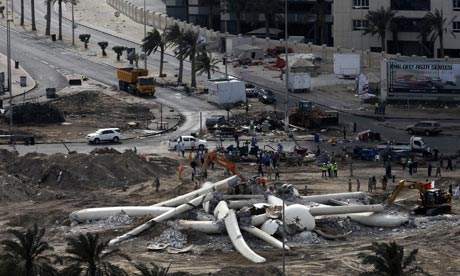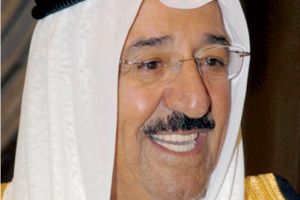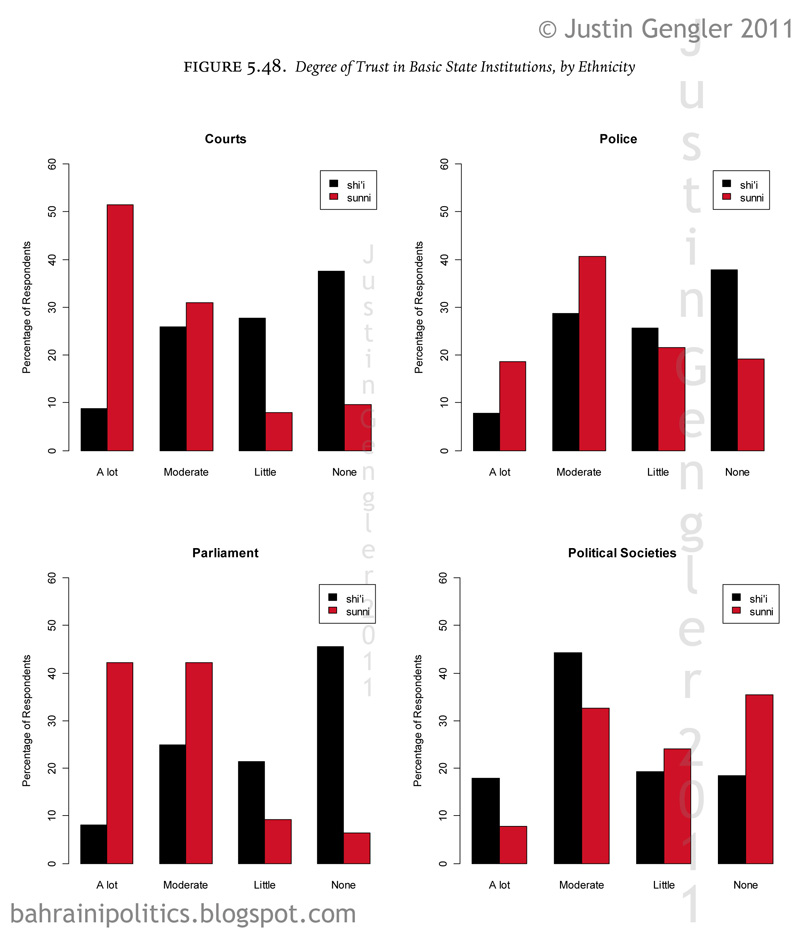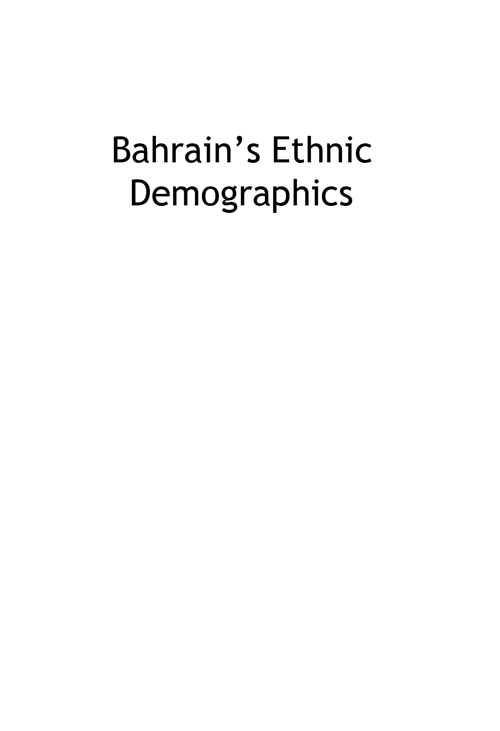 I guess I should have waited a day to post yesterday's article, "Crime in Punishment in Bahrain," because since then there have been two new notable developments that fit nicely into the argument there, that Bahrain's leaders are more interested now in political payback than in political reconciliation.
I guess I should have waited a day to post yesterday's article, "Crime in Punishment in Bahrain," because since then there have been two new notable developments that fit nicely into the argument there, that Bahrain's leaders are more interested now in political payback than in political reconciliation.The first of these developments is the 3am arrest of blogger Mahmood al-Yousif, whose site Mahmood's Den we've linked to several times. Ironically, his final post is titled "Punishment," though it deals with a separate topic altogether. Along with Mahmood, the U.S. State Department mentions two other "Internet activists" who were also detained, about which of course it is "deeply concerned." "Deeply concerned"--that's tellin' 'em!
The second and less straightforward development is this report that the al-Wifaq MPs that resigned (and whose resignations were accepted; read below) in protest over the deaths of protesters are now being stripped of their parliamentary immunity, paving the way for prosecution for something or other. Participation in a "terrorist plot" perhaps. (Indeed, Bahrain's FM is now accusing Hizballah of having trained Shi'a protesters--in Lebanon.)
Now, here's where it gets confusing: al-Wifaq resigned from parliament as a bloc, yet pro-government MPs are only accepting the resignations of 11 members, leaving 7. From the Gulf News:
Resignations accepted:
- Abdul Jalil Khalil, chairman of the bloc
- Khalil Al Marzouq, first deputy speaker
- Jawad Fairouz, chairman of the public facilities and environment
- Mohammad Al Mizal, deputy chairman of the legislative and legal committee
- Hadi Al Mousawi
- Salman Abdullah Salem
- Abdul Majid Al Sibaa
- Matar Ibrahim Matar
- Ali Al Aswad
- Jasem Hussain
- Hassan Sultan
Resignations postponed:
- Abdali Mohammad Hassan, chairman of the service committee
- Abdul Hussain Metghawi, deputy chairman of foreign affairs, defence and national security committee
- Jameel Kadhem
- Abdullah Al A'ali
- Hassan Marzouq
- Mohammad Majid
- Ali Rashed Al Asheeri
So the question, then, is why Sunni lawmakers would NOT want to accept the resignations of all 18 members. One would think that they would prefer to have the lower house to themselves, right? Wrong. In fact, as I've gleaned from browsing Bahraini Internet forums, government supporters consider al-Wifaq's decision to resign en masse, more than just an expression of protest against police treatment of protesters, a dangerous plan to undermine the entire political status quo--to discredit the extant parliamentary system by ensuring that there is no opposition representation. In which case the majlis al-nuwab loses its main function from the standpoint of the government: to give the appearance of democracy in Bahrain. If the parliament consists only of Sunni lawmakers from al-Asalah, al-Manbar, and pro-government tribes, as it did from 2002-2006 owing to al-Wifaq's boycott, then it does more harm than good by making obvious the one-sidedness of the current system. Thus is their argument anyway.
The other important thing to recall is that in Bahrain this business of "stripping parliamentary immunity" is an old game. When I was there in 2008 there was an effort to strip the immunity of independent Salafi MP Sh. Jasim al-Sa'idi after a sermon in which he reportedly “compared some Shiites of Bahrain, without naming their sect, to ‘the sons of Zion bent on acts of destruction and sabotage.’" In response, the pro-government bloc threatened to strip the immunity of al-Wifaq MP Jasim Hussain for remarks he gave to international media (or to a U.S. congressional inquiry into political freedom in Bahrain, I forget which) that were supposed to have "insulted" Bahrain. In the end, though, both sides strategically kept members home on the day of the vote, so neither al-Wifaq or the pro-government societies had the numbers necessary to lift immunity. (The entire episode is actually recorded in one of the Wikileaks documents.)
If I had to guess, then, I would say that the current campaign to "prosecute al-Wifaq MPs," as it is being dubbed in the media, is actually an attempt to get the bloc--at least the 7 whose resignations have not been accepted--back into the parliament, in order to preserve some semblance of its integrity. On the other hand, none of those whose resignations have been accepted are so beloved by ordinary Bahraini Shi'a that their prosecution would spark violent outrage, which would likely be the case were, say, Sh. 'Ali Salman to have been among them. People like 'Abd al-Jalil Khalil, Khalil al-Marzuq, Jawad Fairouz, and Jasem Hussain are not religious leaders with "followers" but respected technocrats, and technocrats that speak very good English--precisely, the sort of person the Bahraini government would rather not have available for discussions with foreign media. Indeed, given the arrests of previous days, including of Mahmood al-Yousef and of a CNN crew at the home of Nabeel Rajab, president of the Bahrain Center for Human Rights, there may soon be few left to give interviews. In the end, then, the threat of prosecution of al-Wifaq MPs is a win-win for the government, whether or not the act itself is ultimately carried out.
Update: in other news, the Telegraph is reporting that "Saudi officials say they gave their backing to Western air strikes on Libya in exchange for the United States muting its criticism of the authorities in Bahrain, a close ally of the desert kingdom." That sounds about right.



























